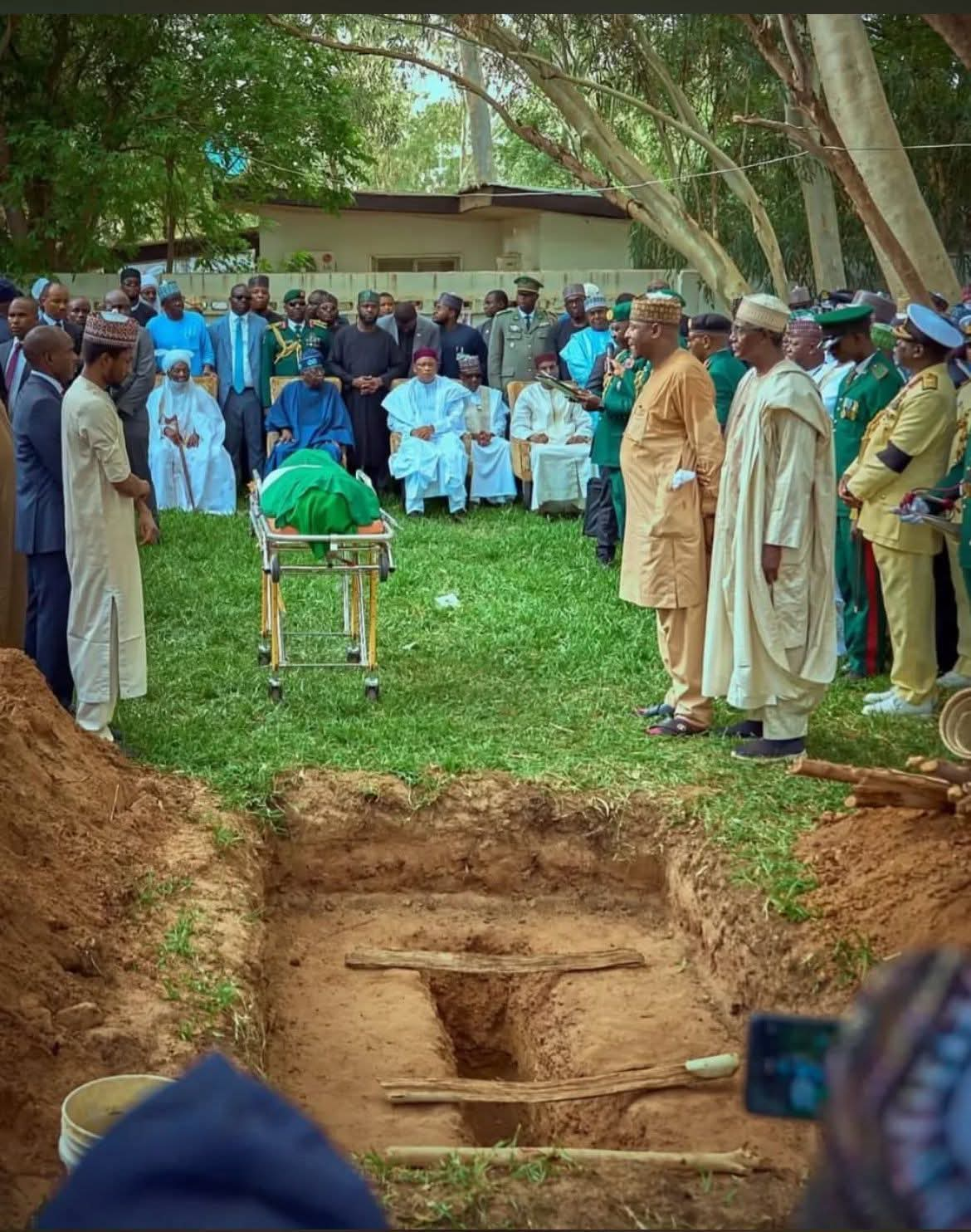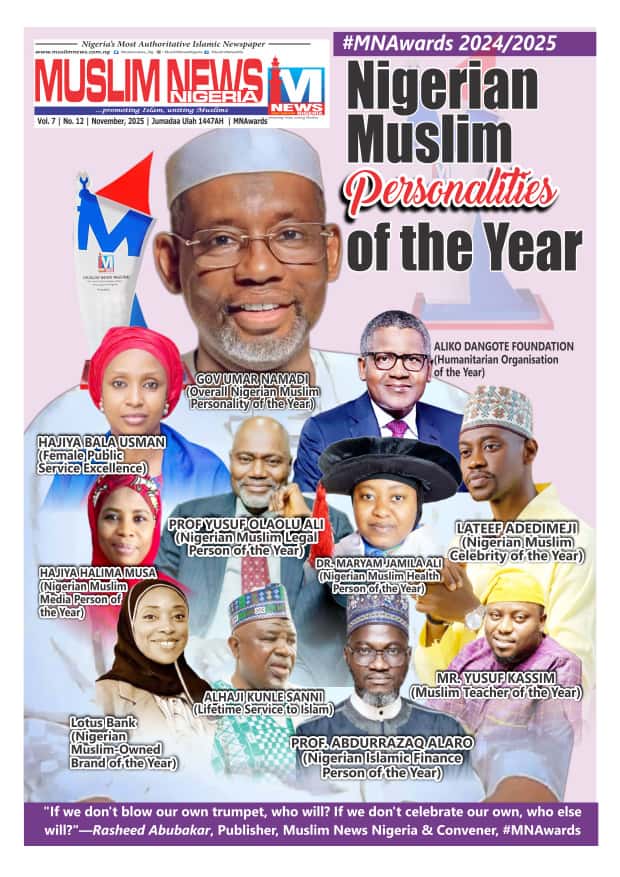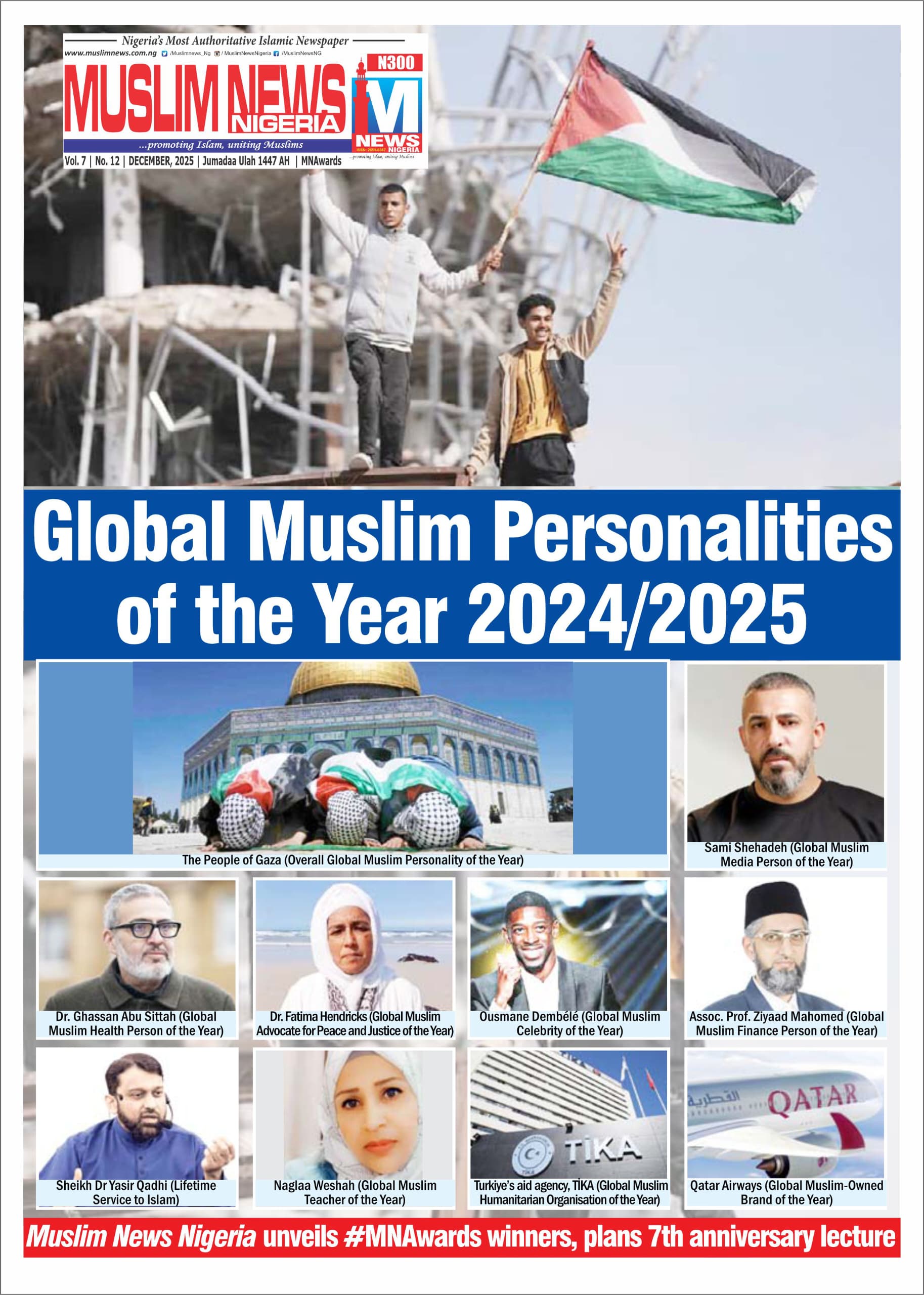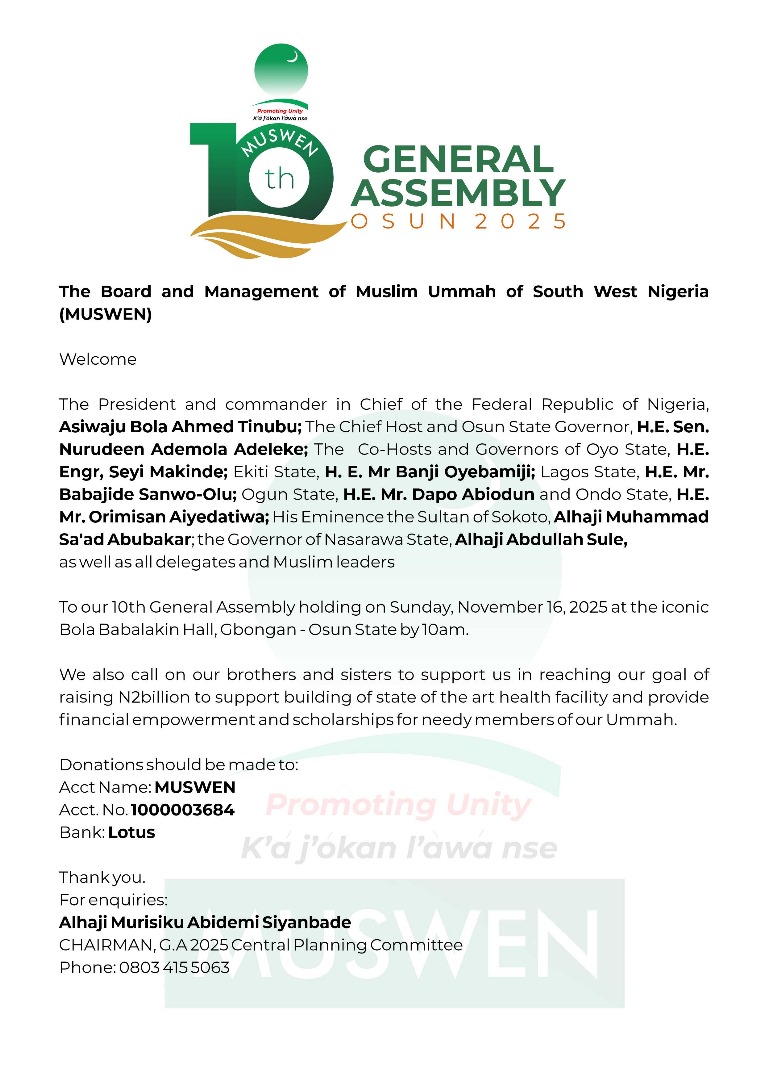As Nigeria honoured former President Muhammadu Buhari with a state burial, Muslim organisations across the country joined millions of Nigerians in paying tribute to the late leader, describing him as a symbol of integrity, discipline, and national service.
Buhari, who passed away on Sunday, July 13, 2025, at the age of 82 in a London hospital, was buried on Tuesday in the backyard of his residence in Daura, Katsina State.
The state burial ceremony included military honours and a 21-gun salute. Thousands of mourners, including President Bola Ahmed Tinubu and senior government officials, gathered to bid farewell, with chants of “Sai Baba” echoing from supporters as the casket, draped in Nigeria’s green and white flag, was lowered.
FORMER PRESIDENT MUHAMMADU BUHARI BURIED
Nigeria’s former President Muhammadu Buhari has been buried on Tuesday, July 15, 2025. His body was lowered into the grave at 5:50pm at his residence in Daura, Katsina State, amidst sober reflection and total submission to Almighty Allah. pic.twitter.com/18Ni6GuTXc
— Muslim News Nigeria (@muslimnews_NG) July 15, 2025
In the wake of his death, leading Muslim organisations across Nigeria released statements reflecting on Buhari’s legacy and calling for his values to serve as a compass for future generations.
MUSWEN: Remembering a statesman of unity and simplicity
The Muslim Ummah of South West Nigeria (MUSWEN) urged Nigerians to reflect on the late president’s values of unity, integrity, and selfless service.
In a statement signed by Alhaji Rasaki Oladejo and Professor Muslih Tayo Yahya, the organisation praised Buhari’s contribution to national development, describing him as a devout Muslim who embodied humility and discipline.
“His integrity, simplicity, and steadfast leadership inspired millions and earned him respect across diverse divides,” the statement read.
MUSWEN also called on President Tinubu to immortalize Buhari by naming national infrastructure or institutions after him, saying that such a gesture would inspire future generations to emulate his patriotism.
President Bola Ahmed Tinubu receives the body of late former President Muhammadu Buhari at the Katsina airport. Sai Baba as the former President is fondly called is moments away from being buried. May Almighty Allah forgive his shortcomings. pic.twitter.com/yCQnTibKxp
— Muslim News Nigeria (@muslimnews_NG) July 15, 2025
The Muslim Congress (TMC): Honouring a disciplined leader
The Muslim Congress (TMC), through its Amir, Alhaji AbdulWasiu Bangbala, described Buhari as a disciplined military leader turned statesman, known for his commitment to fighting corruption and building infrastructure.
“His sincerity and commitment to a better Nigeria were never in question,” Bangbala stated, while also acknowledging the debates that surrounded some of his policies.
He highlighted Buhari’s social investment initiatives, focus on agriculture, and infrastructural projects as lasting contributions. “Though human and therefore imperfect, we pray Allah forgives his shortcomings and grants him a lofty station in the afterlife,” he added.
Muslim News Nigeria joins Nigerians to mourn Muhammadu Buhari, Oba Sikiru Adetona
O Allah, raise their ranks among those who are guided, and take care of those they left behind. Forgive us and them, expand their graves, illuminate it for them and grant them Al-Jannah Firdaus. pic.twitter.com/QW1KN60bBy
— Muslim News Nigeria (@muslimnews_NG) July 14, 2025
MSSN Lagos: Reflect on life’s impermanence
The Muslim Students’ Society of Nigeria (MSSN), Lagos State Area Unit, in a message signed by its Amir, Kamoldeen Abiona, expressed deep sorrow and emphasized the transitory nature of life.
“Every soul will taste death,” the group quoted from the Qur’an, urging leaders and citizens alike to live with purpose and integrity.
The MSSN also called on political leaders to serve selflessly and ensure their legacies are defined by positive impacts, rather than positions held.
Former President Muhammadu Buhari is dead
The former President returned to his Creator, Allah on Sunday, July 13, 2025. He died in a clinic in London. Aged 82. May Almighty Allah forgive him! May Allah grant him Jannah Firdaus. Amin. Read more>>https://t.co/EjRzzFEl1D pic.twitter.com/8vCBQ4RyaZ
— Muslim News Nigeria (@muslimnews_NG) July 13, 2025
MPAC: Buhari’s passing a moment for national reflection
The Muslim Public Affairs Centre (MPAC) also joined in mourning Buhari, describing his death as a moment of solemn reflection on the fleeting nature of power and leadership.
In a statement signed by its Executive Chairman, Disu Kamor, MPAC prayed for divine forgiveness and peace for the former president and extended condolences to his family and the nation.
“His passing is a reminder that service to humanity and accountability to God are what truly endure,” Kamor noted.
MURIC: Buhari, the father of modern Nigeria
Perhaps the most profound tribute came from the Muslim Rights Concern (MURIC), which reiterated its long-standing description of Buhari as “the Father of Modern Nigeria.”
In a detailed statement by Executive Director Professor Ishaq Akintola, MURIC highlighted Buhari’s infrastructural legacy—particularly in rail transport—as a defining feature of his presidency. Citing projects such as the Lagos–Ibadan and Itakpe–Warri standard gauge rail lines, the organisation argued that Buhari re-engineered Nigeria’s infrastructure and security systems despite challenges.
“Seventeen local governments were under Boko Haram control before 2015. Buhari pushed them back and recovered Nigerian territory,” the statement noted, praising his investment in advanced military hardware and refusal to divert funds meant for national development.
MURIC added that Buhari’s refusal to accumulate personal wealth despite his long career in public service marked him as an exceptional figure. “He died leaving behind just two houses—one in Kaduna and another in Daura—both of which he owned before becoming president.”
Describing him as “Mr. Integrity,” “Mr. Nigeria First,” and “a patriot nulli secundus,” Akintola concluded, “We present to you posthumously the greatest patriot Nigeria ever had, Ex-President Muhammadu Buhari, the Father of Modern Nigeria.”
BREAKING: Former Nigeria President Buhari is Dead
Inna lillahi wa inna ilayhi raji’un
The family of the former president has announced the passing on of the former president, Muhammadu Buhari, this afternoon in a clinic in London. May Allah accept him in Aljanatul Firdaus.Amin pic.twitter.com/K2tH4ihZYu
— Muslim News Nigeria (@muslimnews_NG) July 13, 2025
A legacy of contradictions and convictions
Though Buhari’s presidency was marked by criticism over economic mismanagement and worsening insecurity in some regions, many Nigerians consistently emphasized his incorruptibility, personal discipline, and commitment to national development.
His 2015 election victory, the first by an opposition candidate in Nigeria’s history, remains a watershed moment in the country’s democratic evolution.







